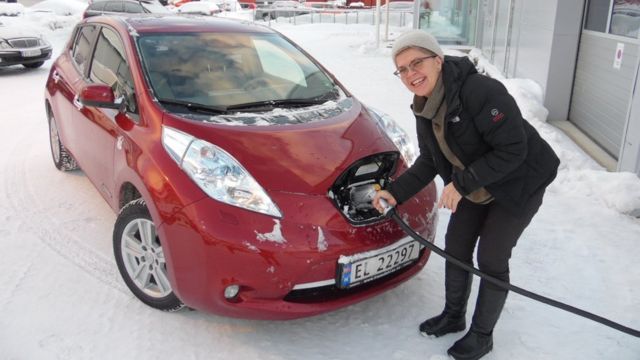Welcome to our comprehensive guide on the economics of electric cars! If you’re curious about electric vehicles (EVs) and how they can save you money while benefiting the environment, you’re in the right place. In this article, we’ll explore the cost-saving advantages of owning an electric car and the various tax incentives offered to buyers. Let’s embark on this journey of discovery and unravel the economic benefits of embracing electric mobility.
The Cost Savings of Electric Cars
1. Lower Fuel Costs
One of the most significant advantages of electric cars is their lower fuel costs. Unlike gasoline-powered cars that depend on expensive fossil fuels, electric cars run on electricity, which is generally more affordable. Charging an electric car at home or public charging stations is often cheaper than refueling a gasoline car, saving you money on your daily commute and long trips.
2. Reduced Maintenance Expenses
Electric cars have fewer moving parts compared to traditional internal combustion engine vehicles. This simplicity translates to reduced wear and tear and, in turn, lower maintenance costs. Say goodbye to frequent oil changes and other costly maintenance services, making electric cars a cost-effective option in the long run.
3. Government Incentives and Rebates
Governments around the world recognize the importance of promoting clean and sustainable transportation. As a result, they offer attractive incentives and rebates to encourage people to switch to electric cars. These incentives may include tax credits, rebates, reduced registration fees, and even access to high-occupancy vehicle (HOV) lanes, providing additional cost savings and perks to electric car buyers.
Tax Incentives for Electric Car Buyers
1. Federal Tax Credits
In the United States, the federal government offers tax credits to qualifying electric car buyers. These tax credits can significantly reduce the overall cost of an electric vehicle. However, it’s essential to note that these credits have specific limits and vary depending on the vehicle’s battery size and overall price.
2. State and Local Incentives
Beyond federal incentives, many states and local governments also provide their own incentives to support electric car adoption. These incentives can vary widely and may include additional tax credits, rebates, reduced sales taxes, or free charging station access. It’s essential to research the incentives available in your area to maximize your savings.
3. Corporate Incentives
Some employers offer incentives to their employees to encourage sustainable transportation. These incentives may include workplace charging stations, financial bonuses, or preferential parking for electric car owners. Check with your employer to see if they offer any eco-friendly incentives.
Frequently Asked Questions (FAQs)
Q1: Are electric cars more expensive to buy than gasoline cars?
A1: While some electric cars may have higher upfront costs, the long-term savings on fuel and maintenance often make them more cost-effective overall.
Q2: How much money can I save with tax incentives when buying an electric car?
A2: The amount of savings from tax incentives varies depending on your location and the specific electric car model. It’s best to research available incentives and consult with a tax professional to determine the exact savings.
Q3: Do electric cars require special charging stations?
A3: Electric cars can be charged at home using a regular household outlet or a dedicated charging station. Public charging stations are also available in many areas for added convenience.

Conclusion
Embracing the economics of electric cars can lead to substantial cost savings and various tax incentives. By reducing fuel costs, enjoying lower maintenance expenses, and taking advantage of government incentives, electric car ownership becomes an economically sensible choice. Moreover, choosing an electric car contributes to a cleaner and more sustainable environment for future generations. So, join the electric revolution and experience the economic benefits of electric mobility!
Related Topic for Search Engines
To further explore the world of electric cars and sustainable transportation, check out our article on “The Future of Electric Vehicles: Advancements and Innovations.” Learn about the exciting developments in electric car technology and the potential they hold for a greener and cleaner future.







